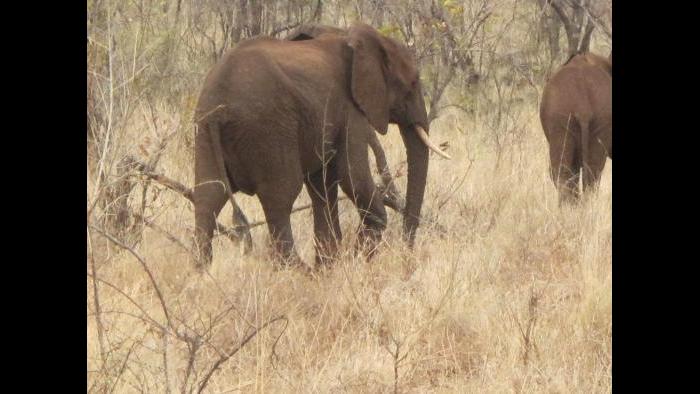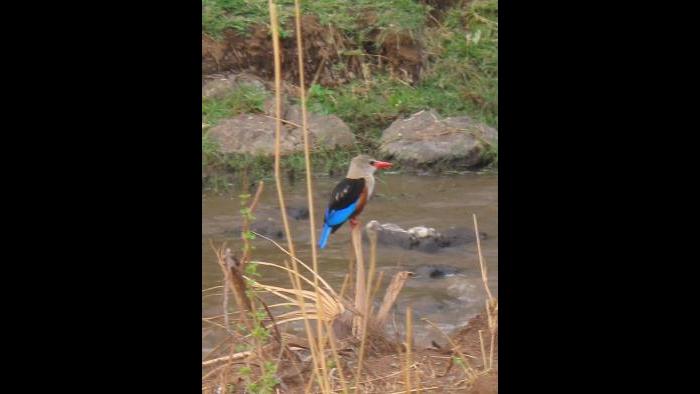Watch the video: Looking at the lure and business of big-game hunting with an award-winning travel writer.
The roar of outrage over the killing of a lion named Cecil continues this week.
As hashtags like #CatLivesMatter go viral, Delta Airlines announced it will no longer transport trophy kills. Walter Palmer, the Minnesota dentist caught in the middle of this controversy, has closed his office and gone into hiding as Zimbabwe's Environment Minister calls for his extradition.
On Sunday, the Zimbabwe government announced the name of a second American responsible for another illegal lion killing this year.
Joining us to discuss the big-game tourism trade and changing attitudes about it, is Terri Colby, who was with the Chicago Tribune from 1995-2009, including time as an editor for the Tribune's Travel section.
Colby is now a freelance travel writer, and her reporting and photographs of a Kenya safari for the Tribune last November won several awards from the Society of American Travel Writers.
In her Chicago Tribune article dated Nov. 5, 2014, Colby writes:
It's difficult to contain the hyperbole, but the sky in Kenya really does seem bigger than in other places. Maybe it's a function of being fully immersed in a natural setting with only organic sensations; the giraffes munching treetops or neon-blue lizards resting a few feet from your chair, the throaty grunts of a leopard as you doze off at night or the feel of the equatorial sun and a mountain breeze on wet skin as you stand in the pool, gazing farther than you can imagine.
Interview Highlights
On her reaction to the killing of Cecil
It was horrific, but what I think most people don’t realize in the U.S. is that big-game hunting is legal in most places in Africa. The terrible part about this killing is that it seemed to be outside of his reserve and done in an illegal way.
On her reflections on her African safari
It’s amazing to be sitting in a car—now, you’re not on the ground walking toward them—but to be sitting on a car with your camera and maybe being six feet away from a pride of lions just after they finished devouring a buffalo carcass.
On the economic impact of photo and big-game hunting safaris
It’s much more expensive to go on a big-game hunt, although just the photo safaris are not cheap. I would say to get a decent safari for a regular person, it’s probably a once in a lifetime trip. Maybe $10,000 is what you would pay for a photo safari where you watch the animals…On the flipside, the hunting types could cost $50,000 for a weeklong trip to hunt and kill a lion.
On her sense of local Africans’ thoughts on big-game hunters
I think it’s part of what they’re used to. Big-game hunting has been going on in Africa for well over 100 years. Teddy Roosevelt was one of the first and who made it most famous and most attractive to many Americans. So I think they are used to Americans coming, and they’re used to it being part of their tourism economy.
On the potential impact of Cecil’s killing
I saw something online today [Monday] that Zimbabwe is already expecting to lose tourism dollars from big-game hunters. I suppose it will also cut back tourism in other places as far as eco-tourism as well. It’s hard to say what the long-term impact will be.
Interview highlights represent a condensed version of our conversation with Terri Colby. Watch the video to see the full discussion.




